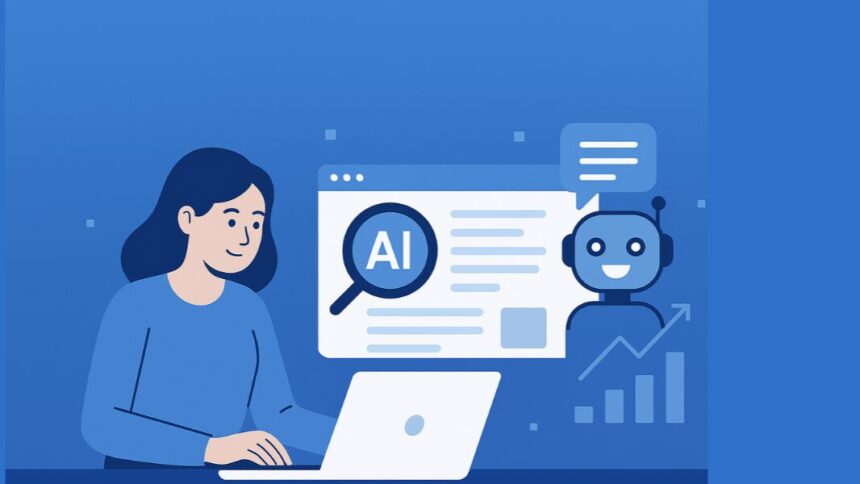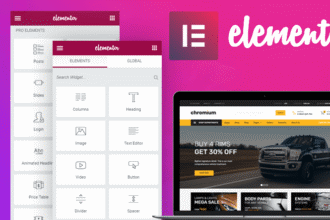- Using AI to Optimize Your Website’s User Experience
- What Is AI and Why Is It Important for User Experience?
- How AI Enhances Your Website’s User Experience
- Why Using AI for User Experience Is a Smart Move
- How to Get Started with AI on Your Website
- The Future of AI in User Experience
- Conclusion
Using AI to Optimize Your Website’s User Experience
In today’s digital world, having a website is not enough. To stand out and grow, your website needs to offer a smooth, engaging, and personalized user experience. That is where artificial intelligence (AI) can help. AI is changing the way websites interact with visitors, making it easier to improve user experience, increase engagement, and boost conversions.
In this article, we will explore how AI can help optimize your website’s user experience. We’ll look at practical ways to use AI and why it is essential for modern websites.
What Is AI and Why Is It Important for User Experience?
Artificial intelligence is a technology that allows machines to mimic human intelligence. It can analyze data, learn from it, and make decisions or predictions. When it comes to websites, AI can do many things — from personalizing content to understanding visitor behavior.
Using AI on your website can help you deliver the right content to the right visitors at the right time. It can also help you fix issues faster and create a more intuitive and engaging experience for users. With more websites competing for visitors’ attention, AI gives you a competitive edge.
How AI Enhances Your Website’s User Experience
Here are some major ways AI can help optimize your website’s user experience:
1. Personalization of Content
One of the biggest benefits of AI is its ability to personalize content for each visitor. Instead of showing everyone the same webpage, AI analyzes user data — like browsing history, location, and preferences — to suggest relevant products, blog posts, or offers. This makes visitors feel valued and increases the chance they will stay longer on your site.
2. Chatbots and Virtual Assistants
AI-powered chatbots are now common on many websites. They handle customer questions instantly, 24/7, without human help. Chatbots can answer common questions, guide users through your website, or even help with purchases. This not only improves customer service but also reduces bounce rates and increases sales.
3. User Behavior Analysis
AI tools can track how visitors interact with your website. This includes which pages they visit, how long they stay, and where they click. By analyzing this data, you can identify bottlenecks or confusing parts of your site. You can then optimize these areas to make navigation smoother and improve overall user experience.
Dont miss: Optimizing Your Website for Voice Search in Nigeria
4. A/B Testing and Optimization
AI can automate A/B testing by quickly trying different versions of your website or specific pages. It then analyzes which version performs better in real time. This helps you make faster, data-driven decisions to improve user engagement and conversions.
5. Dynamic Content and Recommendations
AI allows websites to serve dynamic content based on user behavior. For example, an e-commerce site can show product recommendations based on what a visitor has viewed before. This personalized approach encourages visitors to explore more and increases the chances of making a purchase.
6. Visual Search and Image Recognition
AI-driven visual search lets visitors upload images to find similar products or content. Image recognition technology can automatically tag images or videos, making your website more accessible and easier to find through search engines.
7. Voice Search Optimization
With the rise of voice assistants like Alexa and Siri, optimizing for voice search is crucial. AI helps understand natural language queries, making it easier for visitors to find what they need using voice commands. This can improve accessibility and user satisfaction.
8. Reducing Website Load Times
AI tools can optimize images and code to speed up your website. Faster websites provide a better user experience and rank higher on Google. AI can also predict traffic spikes and adjust resources accordingly.
Why Using AI for User Experience Is a Smart Move
Integrating AI into your website offers many benefits:
- Better Engagement: Personalized content keeps visitors interested.
- Higher Conversion Rates: Targeted recommendations and seamless assistance lead to more sales.
- Improved Customer Satisfaction: Fast responses and helpful interactions boost loyalty.
- Competitive Advantage: Your website can stand out from others that don’t use AI.
- Cost Savings: Automating tasks like customer support reduces operational costs.
How to Get Started with AI on Your Website
If you’re new to AI, here are some simple steps to begin improving your website’s user experience:
- Identify Your Goals: Decide what you want to improve — like increasing sales, reducing bounce rates, or enhancing support.
- Choose the Right Tools: Many AI tools and services are available, such as chatbots, personalization engines, and analytics platforms.
- Start Small: Implement AI features gradually. For example, add a chatbot first and then expand to personalized recommendations.
- Monitor and Adjust: Regularly review how AI features perform and make improvements as needed.
- Focus on Data Privacy: Ensure that you handle user data responsibly, complying with relevant laws like GDPR.
The Future of AI in User Experience
AI continues to evolve quickly. Future improvements may include more advanced natural language understanding, better predictive analytics, and even more personalized experiences. Staying updated on AI trends and tools can help you keep your website ahead in the digital space.
Conclusion
Using AI to optimize your website’s user experience is no longer optional — it’s essential. AI can help you personalize content, engage visitors through chatbots, analyze user behavior, and deliver faster, more relevant experiences. By integrating AI tools and techniques, you can increase engagement, boost conversions, and create a website that visitors love.
Start exploring AI today, and watch how it transforms your online presence. The future of web optimization is smart, personalized, and user-focused — and AI is the key to unlocking it.
Image source: Linkedin.com






